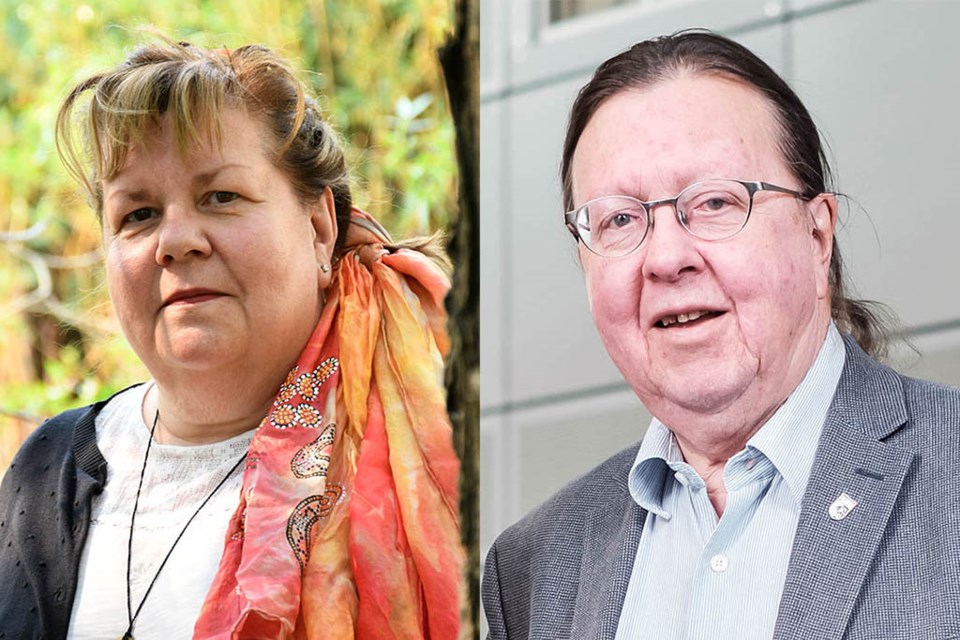SASKATOON – A pair of University of Saskatchewan (USask) researchers will receive in excess of $2.4 million for two projects using Indigenous ways of being and doing to influence change in the justice system and delivery of mental health and addictions services.
USask received a total of $4,453,402 for six project tackling issues ranging from understanding COVID-19 variants to addressing cystic fibrosis at a cellular level. The funding is through the Canadian Institutes of Health Research (CIHR) Projects program. The announcement was delayed due to the federal election campaign.
“These projects, so generously funded through CIHR, display USask’s commitment to health research the world needs — and carrying them out with sensitivity and concern for the communities we serve,” said USask Vice-President Research Baljit Singh. “There is no question lives will be saved and transformed by this work.”
Working with the Elizabeth Fry Society of Saskatchewan, Dr. Alexandra King (MD, FRCPC) and her team will search for ways to support Indigenous women with first-hand experience in the criminal justice system (CJS) on their healing and wellness journeys. The research is intended to nurture connections with land and culture to support wholistic wellness among Indigenous women involved in the CJS residing in kisiskâciwan (Saskatchewan), primarily in Saskatoon. She will partner with researchers from the Colleges of Law and Medicine, as well as the Johnson-Shoyama Graduate School of Public Policy.
“Exploring what health and wellness means to Indigenous women with lived experience of the criminal justice system can also inform pathways for reconciliation within the CJS,” said King. “In working with them, we are actively working towards reconciliation, too, putting words into action.”
King is also a co-applicant on a research project anchored by her husband and fellow researcher Dr. Malcolm King (PhD). This project will enhance Indigenous ways of knowing and doing in the areas of mental health and substance use in partnership with the Recovery Lake Program, a community-led, land- and culture-based healing centre in the Northern Village of Pinehouse. The community has prioritized dealing with alcohol and drug use in the region, and to do so through wholistic ways of healing.
“We will be working in partnership with Pinehouse to explore ways of improving service delivery by incorporating additional land- and culture-based activities as part of the program and conduct process and outcome evaluations,” Malcolm King said. “Data gathering will begin with Métis and First Nations ceremonies, which is the most appropriate way of exploring spiritual and cultural aspects of wellness and Indigenous ways of knowing and doing. Sharing circles and conversational style interviews will be conducted to explore specific topics or to understand individual perspectives.”
Other USask projects funding through CIHR in this announcement include:
Dr. Oleg Dmitriev (PhD) of the Department of Biochemistry, Microbiology and Immunology in the College of Medicine: $761,176 for a five-year project: Molecular mechanism of copper and platinum drug transport in human cells.
Dr. Juan Ianowski (PhD) of the Department of Anatomy, Physiology and Pharmacology in the College of Medicine and team: $100,000 for one-year project: Cellular bases of cystic fibrosis lung disease: epithelial ionocytes transport bicarbonate and control airway surface liquid pH; while club and goblet cells control hydration and volume.
Dr. Anil Kumar Victoria Ansalem (PhD) of the Department of Biochemistry, Microbiology and Immunology in the College of Medicine: $100,000 for one-year project: Functional analyses of pathogenicity determinants of emerging SARS-Coronavirus-2 variants.
Dr. Franco J Vizeacoumar (PhD), Associate Professor in the Division of Oncology in the College of Medicine: $983,026 for a five-year project: Identification of therapeutically relevant targets in telomerase overexpressing prostate cancers.




